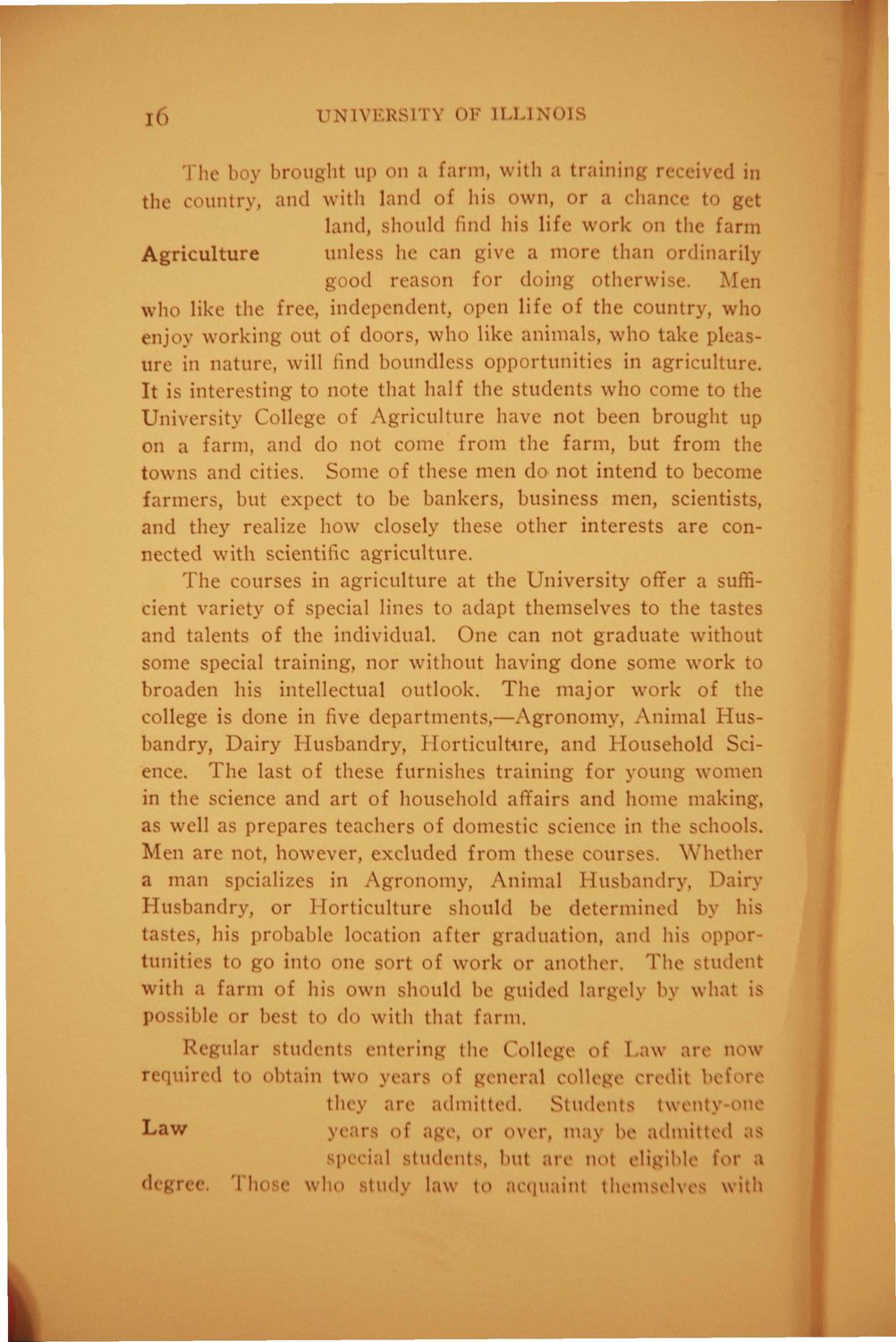| |
| |
Caption: Booklets - Facts for Freshmen (1914)
This is a reduced-resolution page image for fast online browsing.

EXTRACTED TEXT FROM PAGE:
I(> UNIVERS1 rv OF ILLINOIS The hoy brought Up "ii a farm, with a training r- ived in the country, and with land of his own, or a chan< to get land, should find his life work on the farm Agriculture unless he can give a more than ordinarily good reason for doing otherwi e. Men who like the free, independent, open life of the country, who enjoy working out of doors, who like animals, who take pleasure in nature, will find boundless opportunities in agriculture. It is interesting to note that half the students who come to the University College of Agriculture have not been brought u; on a farm, and do not come from the farm, but from the towns and cities. Some of these men do not intend to become farmers, but expect to be bankers, business men, scientists, and they realize how closely these other interests are connected with scientific agriculture. The courses in agriculture at the University offer a sufficient variety of special lines to adapt themselves to the tastes and talents of the individual. One can not graduate without some special training, nor without having done some work to broaden his intellectual outlook. The major work of the college is done in five departments,—Agronomy, Animal Husbandry, Dairy Husbandry, Horticulture, and Household Science. T h e last of these furnishes training for young women in the science and art of household affairs and home making, as well as prepares teachers of domestic science in the schools. Men are not, however, excluded from these courses. Whether a man spcializes in Agronomy, Animal Husbandry, Dairy Husbandry, or Horticulture should be determined by his tastes, his probable location after graduation, and his opportunity to go into one sort of work or another. The student with a farm of his own should be guided largely by what is possible or best to do with that farm. Regular students entering the College of 1 aw are now requii 1 to obtain two years of general college credit befor Law they are admitted. Students twent\ on years of age, or over, may be admitted as special students, but arc not eligible for a degree. Those who study law to acquaint themselves with
| |